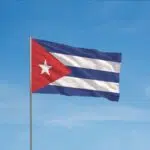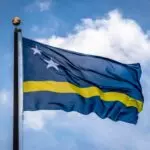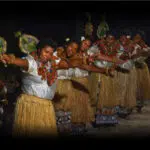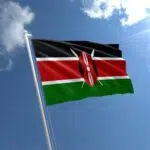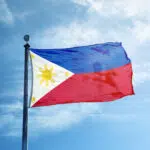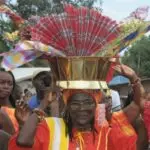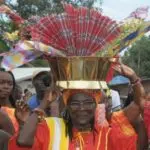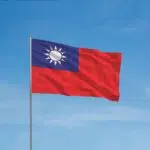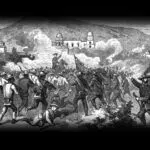Suriname’s Maroons Day is celebrated on October 10 as a public holiday. This festival honors the Maroon people’s heritage and contributions to Suriname. This day is largely commemorated in the interior villages as well as in Paramaribo, in locations like the Palmentuin, by descendants of the Maroons — the ‘Loweman’ — who dress up in colorful ‘pangi’ to celebrate independence with everyone else in Suriname. Maroons Day frequently conveyed the message of ‘strength through togetherness.’ This topic was chosen by the organizing committee’s new goal (the Foundation ‘October 10, 1760’). The foundation’s goal is to foster cooperation among Suriname’s six Maroon countries.
History of Maroons Day
Though the origin of the term is debated, Maroons were Africans and their descendants in the Americas who founded colonies free of slavery. Some had fled plantations, while others had been born free among these settlements. Maroon villages sprang established throughout the Americas and even in other colonized areas of the world, such as Madagascar. This is the origin of the English word ‘Maroon,’ which implies being purposely abandoned on a deserted island or coast — not dissimilar to the experience of most of the original Maroons.
In 1667, the Dutch captured Suriname. After that, the Dutch established over 200 sugar, coffee, cocoa, and cotton estates — the bulk of which were sold back to Holland. Over 13,000 African slaves were sent to Suriname to work on the plantations. Slaves who escaped from farms into the bush formed the local Maroon population. Living in a wild, forbidding South American jungle was preferable to most slaves due to the awful circumstances on the plantations. The Maroons, also known as ‘Bushinengues,’ meaning people of the forest, rose in number and would raid estates to get supplies and liberate female slaves.
The Maroons signed a peace contract with the Dutch colonial authority on October 10, 1760, in which they were recognized as free people and received an annual tribute that provided them with the things they used to pilfer from the plantations. Today, the Maroon group makes for around 20% of Suriname’s population. Suriname is famed for its variety, and its national holidays reflect this — therefore, it is natural that Maroons have their day of commemoration, which was created in 2011 on the anniversary of the landmark 1760 peace accord.
Maroons Day timeline
The Dutch develop over 200 sugar, coffee, cocoa, and cotton plantations in Suriname — the majority of which are sold back to Holland.
After years of futile warfare, the Dutch conquerors conclude that signing a peace deal would be in their best interests rather than prolonging the conflict.
Before slavery is eventually abolished, the Maroons experience 100 years of freedom.
Suriname, once known as Dutch Guiana, gains independence from the Netherlands.
Maroons Day FAQs
Who are the Surinamese Maroons?
The Maroons are descendants of Africans who abandoned the Dutch colonial forced labor farms in Suriname and founded autonomous settlements in the deep jungles. Because of their West African heritage, they have maintained a distinct identity.
What happened to Suriname's Maroon communities?
Maroon settlements began to diminish in the 19th and 20th centuries when woods were burnt, while certain nations, such as Guyana and Suriname, still retain sizable Maroon populations living in the forests. As the trend of urbanization intensifies, many of them have recently relocated to cities and towns.
Why are they known as Maroons?
Slave revolts erupted in Mexico, Spain, and Panama by 1530. These liberated slaves were dubbed “Maroons” by the Spanish, a name derived from “Cimarron,” which means “fierce” or “unruly.”
Maroons Day Activities
Participate in the parade
Santigron, a multi-tribal community approximately an hour's drive south of Paramaribo, hosted celebrations. Join the ‘Prodo Waka’ (Flamboyance Parade), where a woman wears a copper pot filled with maroon rags on her head!
Go dance with everyone!
Traditional Maroon music and dancing set the tone for all of the festivities, which also included speeches and libations. Watch the semi-formal parade through the city streets, in which people of all Maroon nations show their historical and cultural legacy via drumming, music, and dancing.
Check the local craft market
A craft fair was established to highlight the work of women. Mafondo, a women's group, founded this forum intending to encourage business among Maroon women.
5 Facts About Suriname
Smallest country in South America
Suriname is the smallest country in South America in terms of both size and population — with an area of only 63,250 square miles, and a population of only 541,638 people according to the 2012 census.
The capital is a UNESCO Heritage site
UNESCO designated the inner city of Suriname's capital, Paramaribo, as a World Heritage Site in 2002.
Religious tolerance
All religious groups coexist harmoniously in the country — religious tolerance is one of the many examples that Suriname gives the rest of the world.
Ethnic diversity
Suriname is home to East Indians, Maroons, Creoles, Javanese, Amerindians, Chinese, Whites, and many other ethnic groups.
Official language is Dutch
About 60% of Surinamese speak Dutch as their mother tongue, with the remainder speaking it as a second language.
Why We Love Maroons Day
It fosters a sense of belonging
The Maroons Day openly demonstrated a shared desire for liberty. This enabled the Maroons of the Suriname people to fight for freedom as a unified front.
The spirit of Suriname
We like The Maroons of Suriname's never-say-die attitude, as well as its love of music and dancing. It is a country that works hard and carouses much more.
A newfound appreciation for liberty
The Maroons of Suriname battled long and hard for their freedom. Many of us use the word "freedom" without much consideration. The Maroons of Suriname's narrative provokes us to pause and appreciate what we have.
Maroons Day dates
| Year | Date | Day |
|---|---|---|
| 2025 | October 10 | Friday |
| 2026 | October 10 | Saturday |
| 2027 | October 10 | Sunday |
| 2028 | October 10 | Tuesday |
| 2029 | October 10 | Wednesday |


